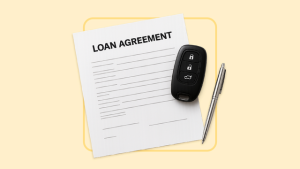Lucy Lambriex/Getty Images
Key takeaways
- Secured loans are popular for startups because they can be easier to qualify for and come with lower interest rates
- Unsecured loans are harder to obtain for new businesses and often require a personal guarantee
- Alternative financing options such as crowdfunding, peer-to-peer lending, business grants, personal business loans and business credit cards can be used to finance a business
If you’re starting a new business, you’ll need money to pay for everything from equipment and inventory to your employees’ salaries. Startup business loans can help you get the funding you need to pay for expenses while you get your business off the ground. According to the 2024 Small Business Credit Survey, 48 percent of startups under five years old were fully approved for financing. While these numbers are lower than approvals for more established businesses, you still have a solid chance at getting funding.
However, you will need to choose the type of loan that best suits your needs, including secured and unsecured options. Secured and unsecured startup business loans each have pros and cons, so you’ll need to review your business’s needs carefully before determining which is best.
What are the key differences between secured and unsecured business loans?
Secured loans for startup businesses require collateral to back the loan, such as business equipment or real estate. Having collateral lowers the risk for the lender, so the lender may offer a lower interest rate and longer repayment terms than unsecured loans.
On the other hand, unsecured loans for startup businesses do not require collateral. This means you won’t risk losing important assets if you fail to repay the loan. But unsecured business loans carry more risk for the lender since there is no collateral to back the loan. The lender may charge higher interest rates or require a personal guarantee to offset that risk.
Bankrate insight
48 percent of small businesses don’t make it past five years. It’s essential to find the right funding to help your business grow — without creating a cycle of debt or negatively impacting your revenue.
Secured loans for startups
Secured loans are popular for startups because they can be easier to qualify for than unsecured loans. Lenders are often hesitant to lend to new companies with no track record of repaying loans. Collateral reduces their risk, making them more willing to lend.
Types of secured loans for startups
Most types of business loans can be backed by business collateral, offering you a secured loan option. Those include:
- Term loans: Offers you a lump sum that you repay over a fixed length of time with interest and fees.
- Business lines of credit: Offers a revolving line of credit that you can draw from repeatedly. The credit limit replenishes as you pay back the loan, allowing you to withdraw from it again, much like a business credit card. Bank of America offers a cash-secured line of credit to help you build credit to qualify for more financing in the future.
- Equipment loans: Equipment loans use the equipment you’re purchasing as collateral to secure the loan. In some cases, they may offer 100 percent financing, requiring no down payment for the loan.
Secured loan pros
- Easier to qualify for: Lenders may accept businesses with lower credit scores or lower revenue if you have collateral to secure the loan.
- Lower interest rates: Lenders may offer lower interest rates because these loans are less risky for the lender than unsecured loans.
- Some lenders let you use the loan to buy the collateral: For example, you can get an equipment loan and use the equipment you’re purchasing as collateral. These types of loans can help you get approved even if you don’t have assets to start with.
Secured loan cons
- You need collateral: Not every business has assets to use as collateral, so secured loans aren’t an option for everyone. If you have limited assets, that could also impact your borrowing limits.
- Risk of losing assets: You put your collateral at risk of seizure when you get a secured loan.
- Longer approval times: Secured loans require the lender to verify your collateral’s value, extending the approval and funding timeline.
Unsecured loans for startups
Getting certain types of unsecured business loans as a startup can be harder than getting a secured loan. Lenders typically require you to have run the business for several years and show a track record of profitability before they will offer you an unsecured loan. Even so, there are some types of unsecured loans that startups could qualify for, like merchant cash advances.
Types of unsecured loans for startup
You may be able to qualify for one of these unsecured loans as a startup:
- Term loans: Offers a lump sum that you can repay with interest over a term like five years. These loans come as secured or unsecured loans.
- Business lines of credit: Gives you a set credit limit that you can borrow from repeatedly. The credit limit replenishes as you pay back your loans, allowing you to borrow from it again.
- Invoice factoring: You sell your outstanding invoices to a factoring company that collects the invoices for you. It advances you 70 percent to 90 percent of the invoice amount. Once the invoices are paid, the factoring company collects its fees.
- Merchant cash advances: This type of unsecured loan uses future debit and credit card sales to offer you a loan. You repay the loan out of a percentage of your sales until the loan is paid off. While this loan has high approval rates, it often comes with exorbitant fees.
Unsecured loan pros
- No assets needed: Because you don’t have to offer collateral, you can get an unsecured loan even if your company has no assets.
- Less risky: You’re not putting your assets at as much risk with an unsecured loan. However, if you’ve signed a personal guarantee, the lender could pursue your personal assets if you default.
- May be discharged in bankruptcy: It’s typically easier to discharge unsecured loans in bankruptcy than to discharge secured loans. With careful debt management and smart business practices, hopefully, this pro will never become relevant to you.
Unsecured loan cons
- Harder to qualify: Lenders may have stricter requirements if you want an unsecured loan. You might have to demonstrate higher revenue or wait until you have two years or more in business.
- Limited borrowing ability: With secured loans, you can borrow large amounts, assuming you have sufficient collateral. Unsecured loans typically have lower borrowing limits.
- Higher costs: To compensate for the higher risk, most lenders charge higher fees and rates on unsecured loans.
Which is better for my startup?
In general, your startup is more likely to get approved for a secured loan. You’ll also see lower interest rates and more favorable repayment terms, effectively lowering the cost of the loan. As long as you have sufficient assets, you may want to go with a secured business loan.
If your company has limited assets or you don’t want to put up assets as collateral, you’re left with unsecured loans as an option. To give yourself the best chance of qualifying, you’ll likely need to wait a few months and build a history of profitability to show lenders that you’ll be able to pay back the debt.
How to choose between a secured vs. unsecured startup loan
When choosing between a secured or unsecured startup business loan, consider the following factors:
- Collateral: You can choose a secured loan if you have assets to use as collateral.
- Risk: Secured loans come with the risk that your assets could get seized by the lender if you can’t make the loan repayments. But unsecured loans often come with a personal guarantee, a statement that guarantees you’ll repay the loan with personal assets if necessary.
- Credit impact: You need strong credit to qualify for an unsecured loan. If you have fair or bad credit, you’re more likely to get approved for a secured loan.
- Borrowing limits: Secured loans come with higher borrowing amounts than unsecured loans as long as you have sufficient collateral.Interest rates: Secured loans offer lower interest rates than unsecured loans.
- Interest rates: Secured loans offer lower interest rates than unsecured loans.
What are alternatives to secured and unsecured startup business loans?
While secured and unsecured startup business loans are two options for financing your business, you can also look into alternative methods of financing, such as:
- Crowdfunding: Involves raising money from a large number of people in small amounts to fund a project or venture. Crowdfunding is ideal in your early stages of business if you don’t need a large amount of funding. One of the most popular types of crowdfunding is reward-based, where donors receive a product or service related to your business in exchange for their contribution.
- Peer-to-peer lending: This form of lending involves receiving a business loan from individuals rather than a bank. Peer-to-peer lending typically has less stringent requirements, and investors may be more open to lending to a startup than a traditional lender would be.
- Business grants: Awards given to businesses by a government agency, corporation or nonprofit foundation. You do not need to repay the money, allowing you a way to fund your business without debt financing. Grants often target specific types of small businesses, such as those run by minorities, women or veterans.
- Personal loans for business: You may be able to use a personal loan for business purposes. Keep in mind that you will be personally responsible for making payments and that repayment terms are dependent on your creditworthiness. Even individuals with bad credit may be able to find options, as alternative and online lenders may offer bad credit loans.
- Business credit cards: Business credit cards can help if you can’t qualify for other types of funding and only need a small amount. Interest rates tend to be higher than business lines of credit or loans, but you aren’t charged interest if you pay your balance off every month. Additionally, many business credit cards come with perks, such as cash back, points or introductory APRs.
The bottom line
Choosing between a secured or unsecured startup loan will depend on whether you have valuable assets to back the loan. While secured loans involve risking your assets if you can’t repay, they do come with lower interest rates and favorable repayment terms. You’re also more likely to get approved for secured loans as a startup. But if you have strong credit and don’t want to put up assets to back the loan, you may be able to get an unsecured business loan.
Regardless of which loan you choose, follow the right steps to apply for a loan and compare rates, terms and fees to find the best startup loan option.
Frequently asked questions
-
Secured loans require collateral, such as business equipment or real estate, and come with more flexible terms and lower interest rates. Unsecured loans do not require collateral but often require a personal guarantee. The best unsecured business loans are available only to borrowers with strong credit. They tend to come with stricter requirements and higher interest rates.
-
The application process for both secured and unsecured loans requires similar information, including a company’s financial documents, personal and business credit scores and personal details. Depending on the type of loan, you may also need to present a business plan. In the case of secured loans, you may need an appraisal to show the value of the collateral you’re using to back the loan.
-
consider your collateral, the risk you’re willing to take in losing that collateral, the interest rates and terms you’re looking for and which loan you’re most likely to qualify for. Many startups will find a secured loan easier to qualify for than an unsecured loan.
Read the full article here









